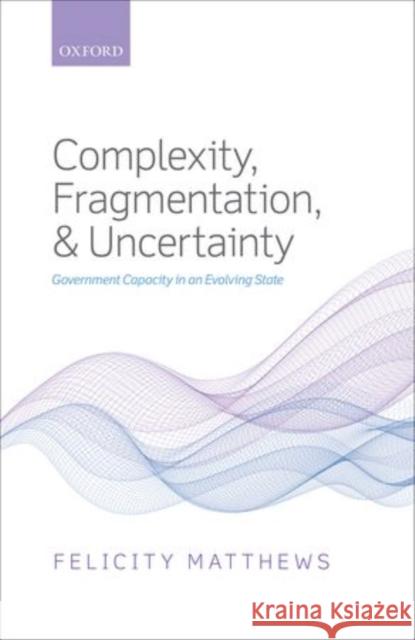Complexity, Fragmentation, and Uncertainty: Government Capacity in an Evolving State » książka
Complexity, Fragmentation, and Uncertainty: Government Capacity in an Evolving State
ISBN-13: 9780199585991 / Angielski / Twarda / 2013 / 296 str.
In posing challenging questions about the relationship between state and society, theories of governance have promoted fierce debate regarding the capacity of government in an increasingly crowded policy terrain. Presenting for the first time the results of an extensive programme of original research, this book analyses the ways in which national governments have responded to the raft of challenges to capacity associated with the governance debate. In doing so, it considers the impact of new policy challenges such as the earth's changing climate, and the increasing necessity of securing individual behavioural change. To illuminate these issues, the book focuses on the Labour Government's attempts to steer the British state, offering the first in-depth analysis of the Public Service Agreement framework - a target-based delivery instrument, underpinned by the principles of centralised steering and accountability, cross-Whitehall collaboration, and operational autonomy - as a critical tool of strategic governance. As the story of Labour's approach to governing through the Public Service Agreement framework unfolds, a range of important themes emerge regarding the extent to which an increasingly crowded policy arena has engendered complexity and fragmentation at all stages of the policy process; and in turn, the extent to which a recognition of such challenges permeated the political, cultural, and institutional norms of government. Yet, despite the picture of a hollow state painted in many accounts of governance, the book reveals how the unique resource advantages and democratic legitimacy afforded to central governments equip them with the potential to redefine their role and preserve their centrality.











